تاپیک Beauty یا زیبایی بخاطر ماهیت انتزاعیش در هر سه پارت اسپیکینگ آیلتس چالشبرانگیزه.
سوالات غافلگیرکننده این تاپیک، علاوه بر فلوئنسی میتونه نمره coherence تون رو هم تحتتاثیر قرار بده.
سعی کنید ساده فکر کنید و شسته رفته حرف بزنید و دانشتون رو از قبل درباره موضوع بالا ببرید.
این درس کمک میکنه، علاوه بر لغات و اصطلاحات کاربردی، ایدههای مناسب رو هم تو جواباتون استفاده کنید.

منابع مرتبط با تاپیک Beauty در آیلتس
قبل از اینکه سوال و جوابای این تاپیک رو تمرین کنید، راجعبه تاپیک beauty بخونید تا دید وسیعتری نسبت به موضوع پیدا کنید.
منابع پیشنهادی من ایناست:
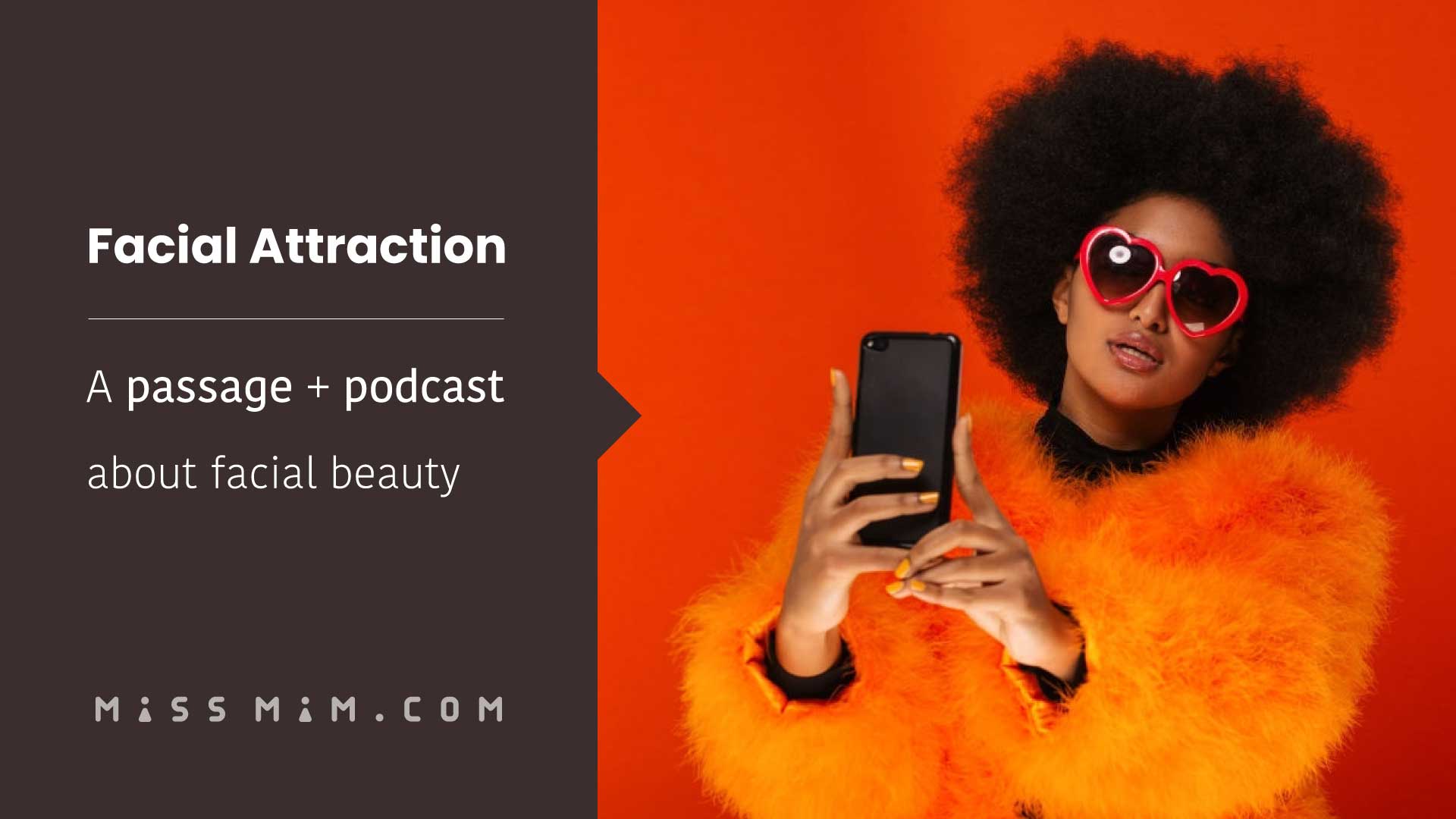
One# Facial Attraction
این درس از کتاب Focus on Vocabulary 1 با عنوانی شینطتآمیز – که اشاره به فیلم Fatal Atrraction داره – به نقش ژنتیک و تکامل در ترجیح ذاتی ما نسبت به بعضی چهرهها میپردازه.
مترادفها و کلماتی که برای توصیف جذابیت چهره در این درس یاد میگیرید بیبدیله!
- متن PDF این درس رو اینجا بخونید.
- فایل mp3 این درس رو اینجا گوش کنید.
- تمرینات لغت این درس رو اینجا انجام بدید.
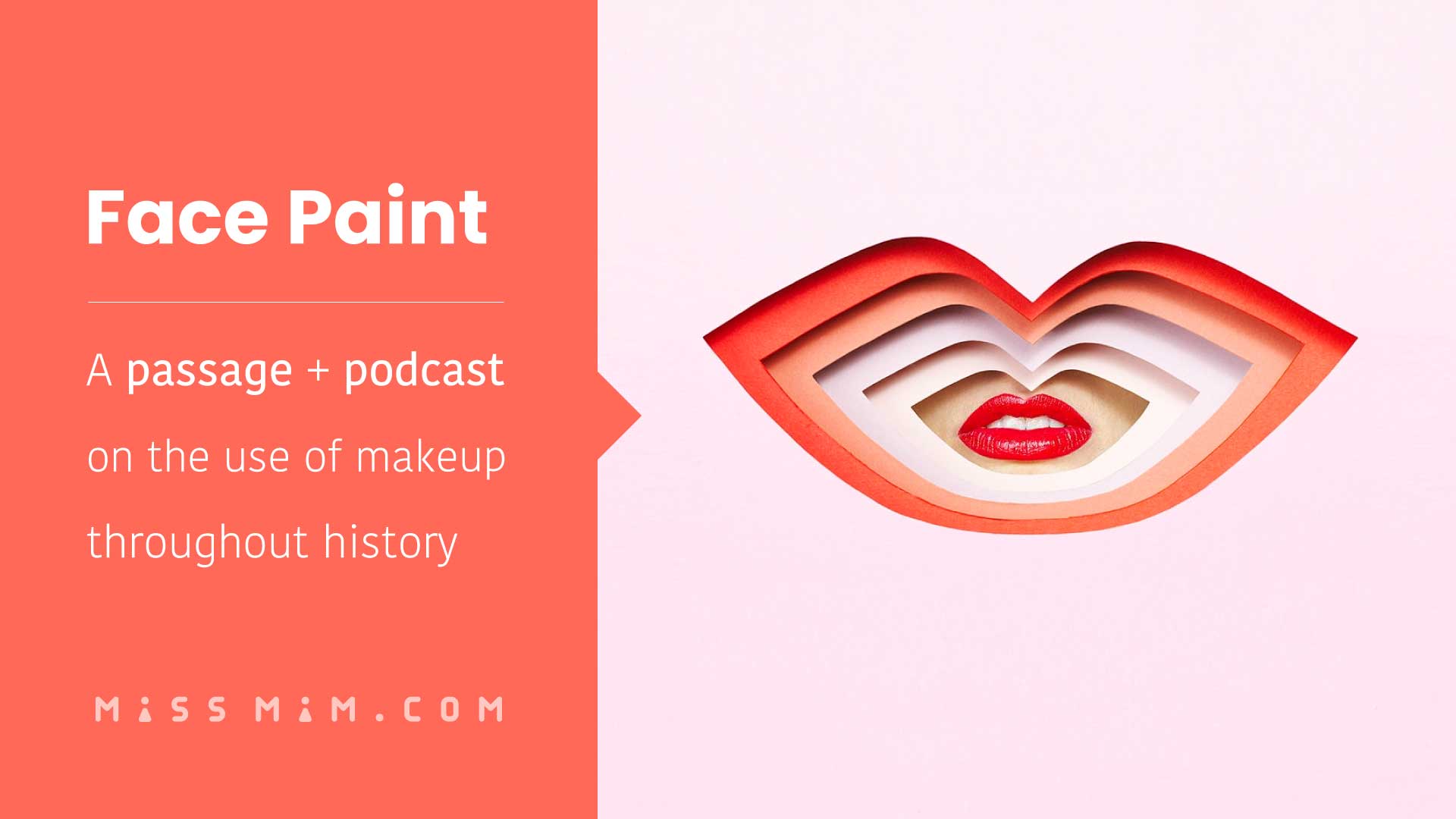
Two# Face Paint
این درس از کتاب Focus on Vocabulary 1 به تحول میکاپ در طول تاریخ میپردازه و اگه فکر میکنید میکاپ همیشه یه موضوع زنونه بوده، این درس نظرتون رو عوض میکنه!
- متن PDF این درس رو اینجا بخونید.
- فایل mp3 این درس رو اینجا گوش کنید.
- تمرینات لغت این درس رو اینجا انجام بدید.

IELTS Speaking Part 1 Questions
▪️What is beauty for you?
“I personally would call a person beautiful, mostly when I find myself at ease around them. So, to me, attractiveness has more to do with the way you behave rather than the way you look. That being said, it’s absolutely naïve to argue that looks don’t matter. Some would even go so far as to say ‘beauty is only skin deep’ to downplay the importance of physical attraction in human relationships. But nothing can be farther from the truth that we’re genetically biased to go for good looks. Therefore, being beautiful inside and out both matter.”
This response can demonstrate your willingness to speak at length, though the examiner might cut you off before you get to complete your lecture!
Let’s see what’s good about this answer.
- linkers have been used quite generously: That being said, Therefore, so far as, So, but, …
- the use of idiomatic language is evident: beauty is only skin deep, nothing can be farther from the truth, being beautiful on the inside
- less common vocabulary items are right there: naïve, downplay, genetically-biased, …
>> Useful Language
▫️Outer Beauty Vocab
Being attractive
Being handsome
Being good-looking
Having good looks
▫️Inner Beauty Vocab
beauty on the inside
to be beautiful on the inside
beauty comes from the inside
▫️Useful phrase(s) and idiom(s) about beauty
Beauty is only skin deep (idiom)
Used to say that a person’s character is more important than how they look.
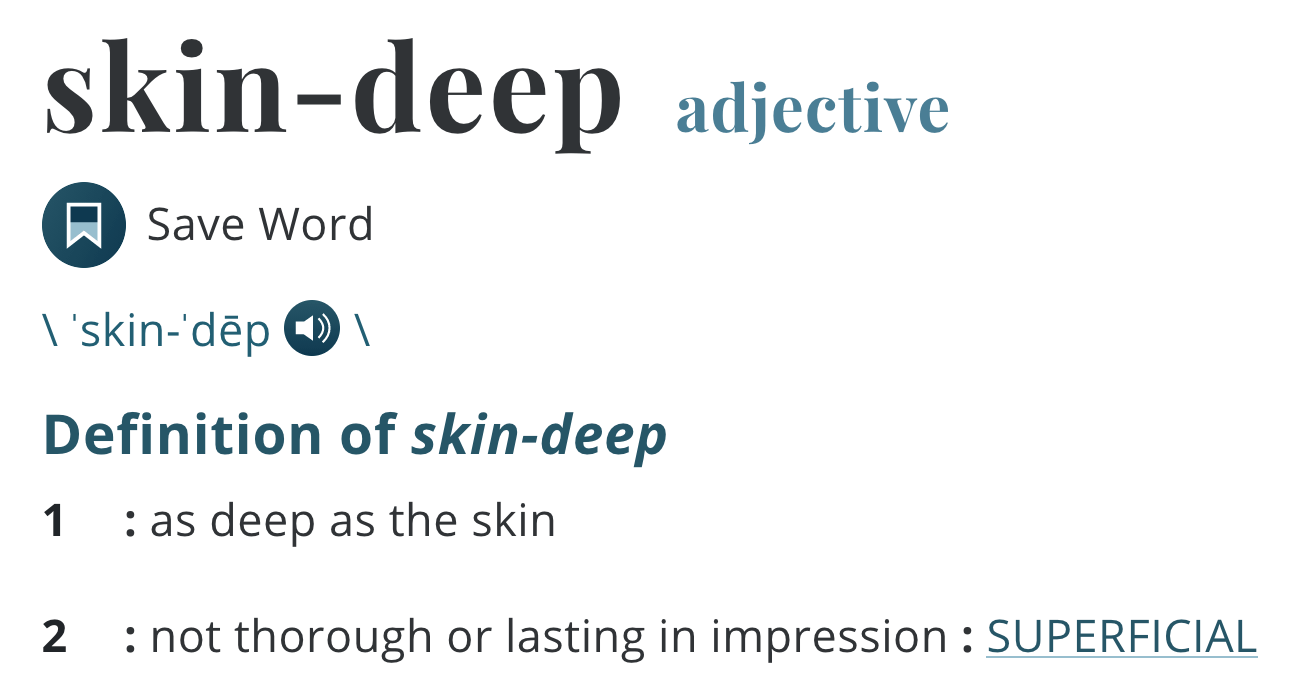
▪️What are the advantages of being beautiful?
No one could argue that being good-looking has many perks, from desirability in personal relationships to higher employability in work settings. Simply put, physically attractive people could have a wider range of potential partners to date with. On a professional level, they tend be evaluated as better hires – say in a job interview – than their less attractive counterparts.
>> Hints & ideas
- perks
- Desirability
- Employability
- Higher pay
- a better hire (n)
▪️What are some drawbacks of being beautiful?
Although your instinct says ‘none’, the thing is, there’s always a dark side to anything good.
Attractiveness can work against you in numerous ways, across various situations or settings. Let’s say at work, the beauty bias or Lookism can invoke some stereotypes such as ‘oh, she got this job because of her looks’ or whatever. The same applies to interpersonal relationships where it can might stir up jealousy or competitiveness among friends, especially because someone’s beauty might be perceived as a threat to the survival of other members of the same sex in the group or circle.
If you feel like, reorganize any of these core ideas into a whole new response that you personally resonate with:
▪️Perceived to be less talented
▪️Jealousy and rejection
Start with phrases such as:
- Attractiveness can work against you when/where …
- Good looks can be disadvantageous if …
- Beauty can lead to being treated unfairly in …
Less common vocabulary items that can step up your game:
▫️Attractiveness bias
▫️Lookism
▫️Beauty bias
▪️What do you think of plastic surgery?
I’ve got nothing against cosmetic procedures, as long as they do not result in looking bizarre or overdone. Let’s face it, the standards of beauty have changed dramatically and everyone, especially the younger generation is constantly flooded with the ideas of how they should look and feel pressured by their peers and even the society to look a certain way which eventually will urge them to measure up to these expectations, no matter how unrealistic they might be. So whether we despise it or not, cosmetic surgeries is increasingly becoming a part of our reality.
>> Useful language
- I have nothing against them, provided/providing …
- I do not mind it, as long as …
- I am all for natural beauty, since …
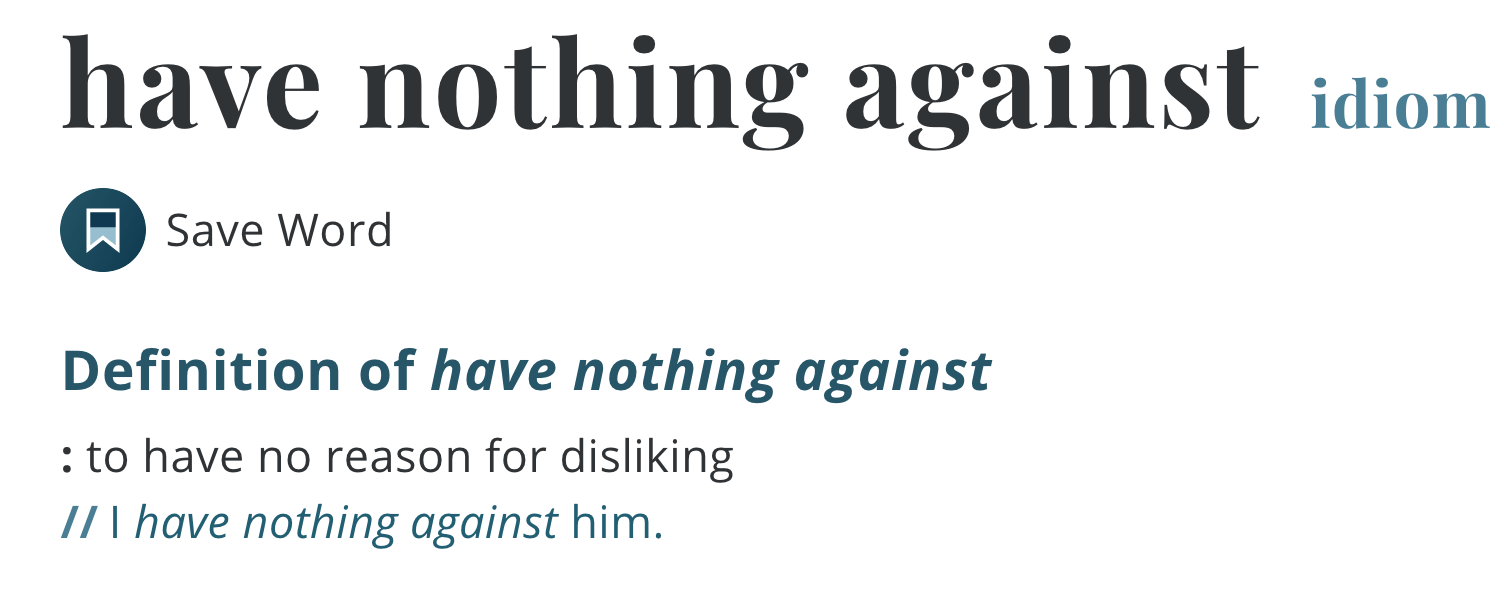
Also, avoid repeating the word plastic surgery, especially at the beginning of your reply.
Use Cosmetic procedures/ surgeries instead.
▪️What type of plastic surgery is common in your country?
Well, all sorts of! From nose job and lip fillers to liposuction and breast augmentation, you name it, depending which part of their body or face they’re most insecure about. Unfortunately, a whole lot of teenagers go for cosmetic surgeries, even before their twenties.
Here is a short list of popular plastic surgeries:
- Nose job/reduction/reshaping
- Getting or having lip/cheek fillers
- Liposuction
- Breast and buttocks’ augmentation
However, it’s not a good idea to simply give a list of surgeries. Truth be told, listing is not an option in IELTS!
Name two or three of the most common ones and extend your response by extra information, like so:
‘ … of which an increasingly large number of them do not really go well or end up looking overdone.’
This last part is just for the sake of development and to show your willingness to speak at length. Also, feel free to replace it with anything you personally relate to or feel concerned about,

IELTS Speaking Part 2 Questions
▪️Describe a person that you know who you think is beautiful/handsome.
You should say:
who he/she is
how you know him/her
what you know about him/her
and explain why you think he/she is beautiful/handsome.
>> Useful language
The vocabulary used to describe men/boys are slightly different than those used for women/girls.
Keep in mind that good-looking, attractive, and charming are used for both genders, while pretty/beautiful is used only for the female and handsome only for the male.
For women, use:
- to be a beauty
e.g. She was a real beauty.
- Goddess (a woman whose great charm arouses adoration)
- absolutely Gorgeous
- exceptionally beautiful
- incredibly beautiful
- absolutely stunning
- have a feminine/elegant figure
- have a slender built
- have an athletic body type
For men:
- A hunk
- a hunk of a man (Slang: a large, strong, sexually attractive man)
- Well-built
- Muscular
- Broad/wide-shouldered/square-shouldered
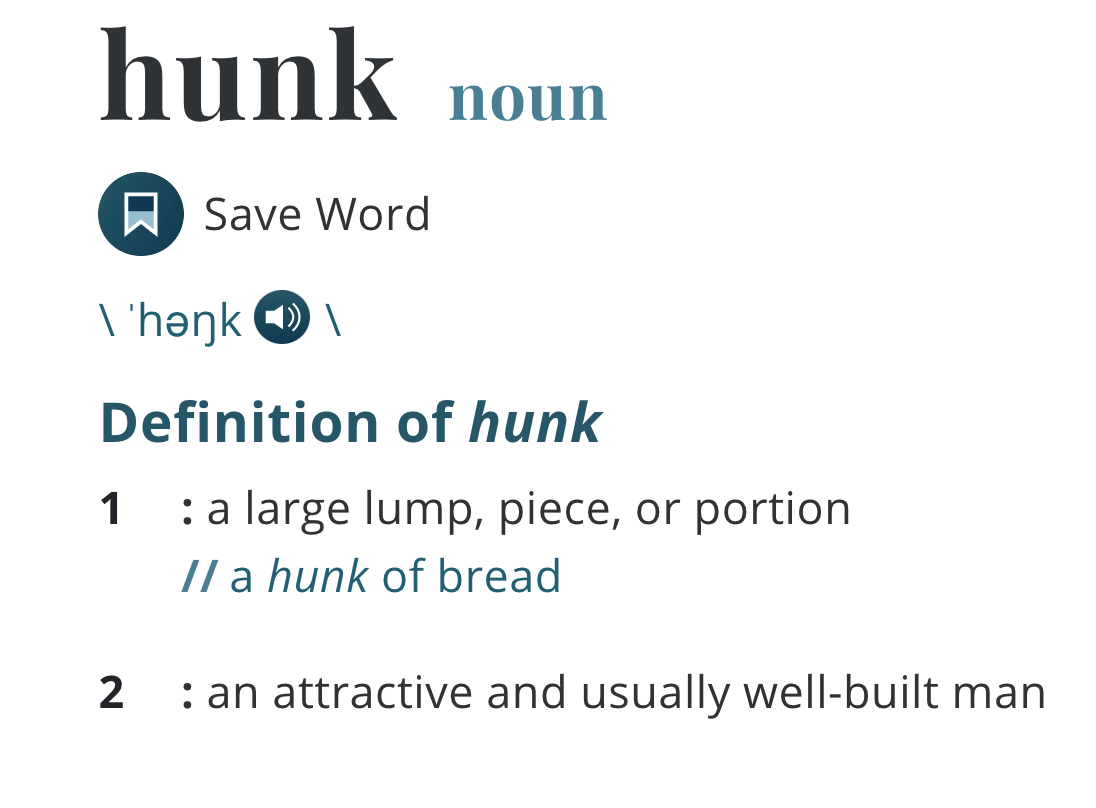

IELTS Speaking Part 3 Questions
▪️Do you think beauty standards vary across cultures?
I tend to say both yes and no as a response to this question, in the sense that the idea of beauty is personal as well as universal. In other words, although people in a particular location who share a common culture would glorify certain facial features or body types, the same qualities or characteristics might be degraded or even shamed in other cultures. A case in point could be having a hawk nose which results in being constantly mocked in this modern Iranian society, while the same nose shape is considered to be so ‘Roman’ in other communities! In this sense, the definition of beauty is mostly culture-bound. Having said that, the standards of beauty are equally universal as seen with those people who have come to represent the standards – the international beauties – such as X or Y among many others.
Your response should consist of four parts:
- Saying YES/NO to the question + short answer
e.g. I’d say yes/no …
I suppose yes/no …
I tend to say yes/no …
I wouldn’t say/think so …
- Paraphrase of the [idea of the] question
e.g. The idea of beauty is/not very cultural …
the idea of beauty is/not culture-bound
- Signal you’re going to explain/give reasons
e.g. because …, in the sense that …
- Explain as if you were asked ‘why, how?’
e.g. … because people from a particular country tend to show a preference for certain looks or face or body types over others …
- Expand and support
e.g. … this is well-demonstrated in the modern society where those who have had cosmetic surgery gain more attention (do they? :p)
Rephrase the question and avoid repeating the examiner’s words.
Useful Language
Standards of beauty: the idea of beauty
Here are some ideas as well as higher-level language to develop your own response.
- Beauty is cultural.
What one community admires may leave another group of people cold or even repulsed.
- Beauty is personal.
What one individual finds irresistible elicits a shrug from another.
- Beauty is universal.
There are international beauties – those people who have come to represent the standard.
Beauty is in the eye of the beholder (idioms)
that the perception of beauty is subjective – what one person finds beautiful another may not.
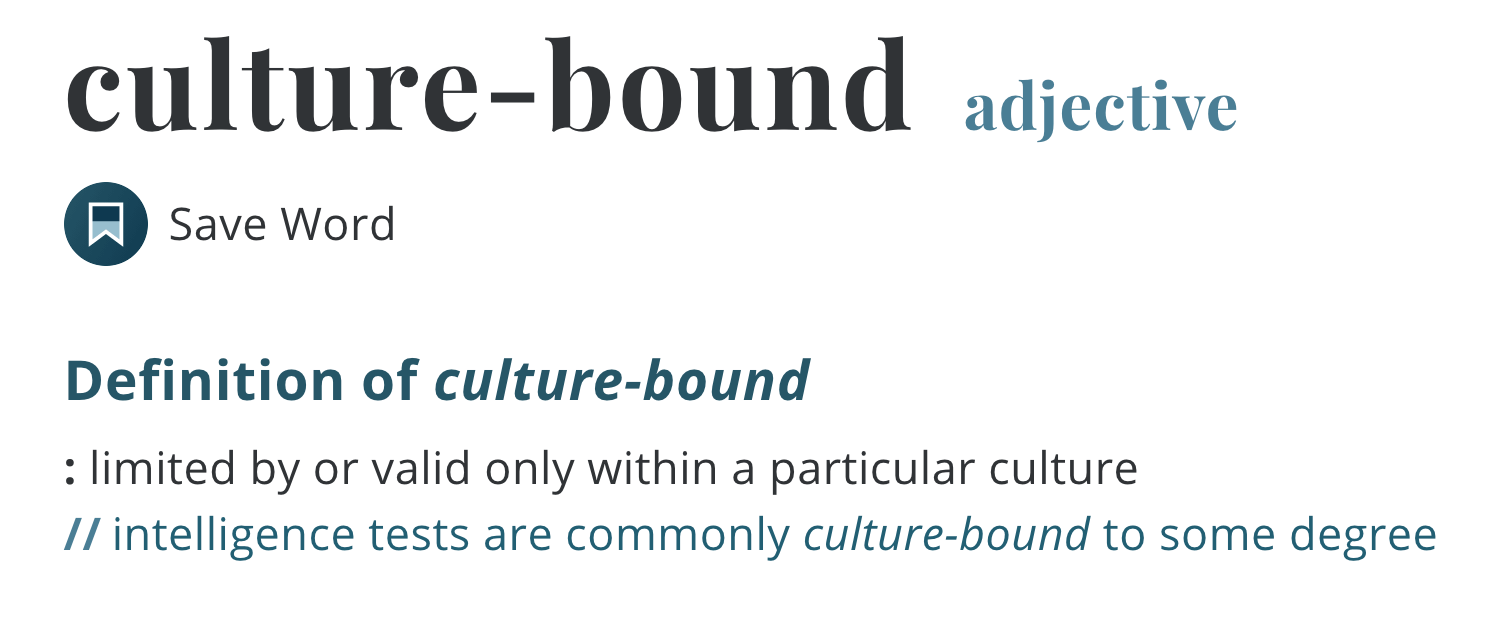
▪️Do you think that the media influences our idea of beauty?
Unfortunately yes; Being exposed to ads featuring beauty products, we inevitably benchmark ourselves against them which could potentially result in lower self-esteem, and the reason to this is so obvious, we find ourselves far from those idealized qualities and features: the unrealistically slender-looking supermodel body shapes or the perfect baby skin and many more. In fact, for the majority of us, it’s inconceivable to possess what only those glorified ad models have. So, yes, it does have a huge impact but mostly on a subconscious level, meaning that it happens beyond our conscious choice or even understanding.
▫️ Synonyms for media:
Advertisement
▫️ Synonyms for influence:
Affect (v)
▫️ Synonymous phrases for the idea of beauty:
portrayal of beauty
beauty standards
the standards of beauty
▫️ Ideas/research on how advertisements affect us:
- We compare/benchmark ourselves against ads featuring beauty products (or the product models)
- advertisements affect how positively or negatively we – as consumers – evaluate ourselves
- more often than not it results in lower self-esteem – especially in women
▪️How do the beauty and fashion industries impact society?
This question draws on the previous one in the sense that both have to do with the effects of beauty standards and what’s idealized. But this is more large-scale.
I’d say cosmetic brands massively change the way we think of and seek beauty by promoting certain beauty and body ideals that not only might not be achievable, it also forces people – especially the younger generation – to seek perfection to live up to what’s been portrayed as beauty or trendy.
>> Hints & Ideas
- cosmetic/beauty brands promote beauty/body ideals
- force people to seek perfection
- To have to look a certain way
▪️How has people’s idea of beauty changed over the years?
>> Useful language
- The idea of beauty has shifted/is always shifting
- the definition of beauty has expanded/continues to expand
>> Pro Tip:
This is a great blog post on beauty standards in Iran during the 19th century; great vocabulary and much fun :)
Also this one – by National Geographic – really got me thinking.

IELTS Speaking Questions About Beauty
PART 1
What is beauty for you?
What are some drawbacks of being beautiful?
What are the advantages of being beautiful?
What do you think of plastic surgery?
What type of plastic surgery is common in your country?
Whom do you consider the most beautiful person in your life? And why?
PART 2
Describe a person that you know who you think is beautiful/handsome.
You should say:
who he/she is
how you know him/her
what you know about him/her
and explain why you think he/she is beautiful/handsome.
PART 3
Do you think that the media influences our idea of beauty?
How do the beauty and fashion industries impact society?
How has people’s idea of beauty changed over the years?
Do you think beauty standards vary across cultures?
What are some examples of beauty stereotypes promoted in your country?
Do you think that advertisements, in general, have the correct idea of beauty?
How do you think people feel about such expectations regarding beauty?
How might people’s perception of beauty change in the future?

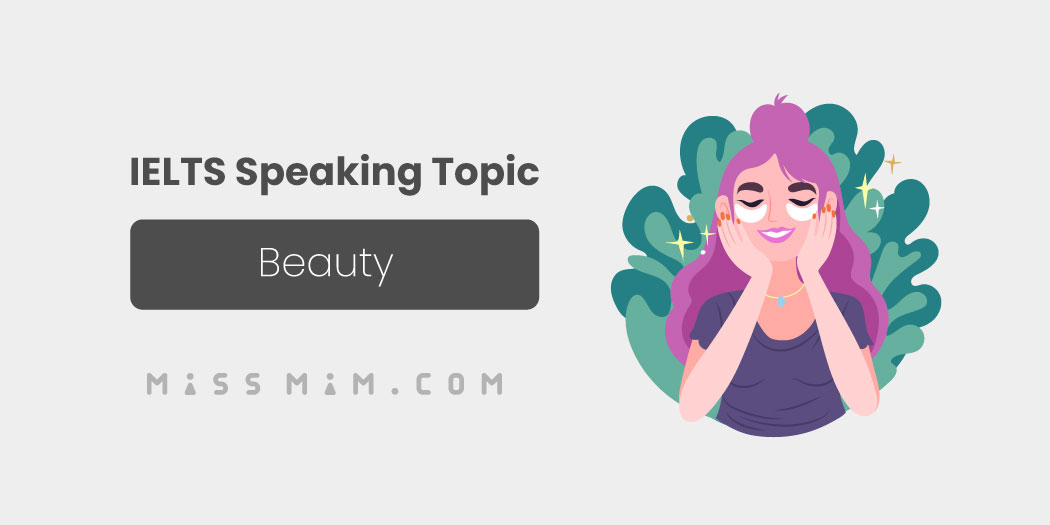
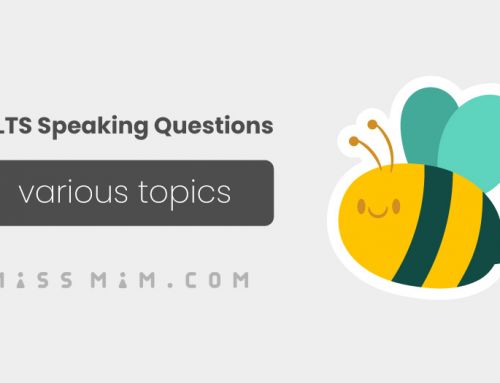
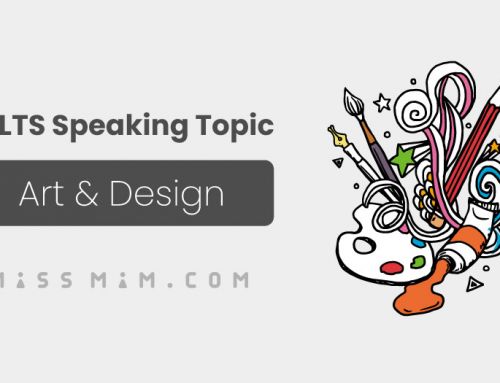
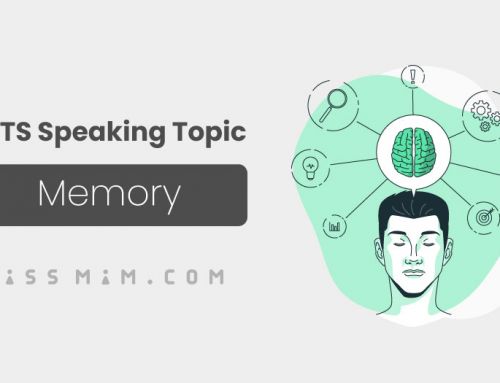

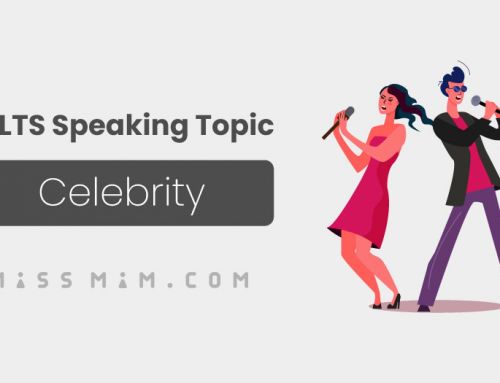
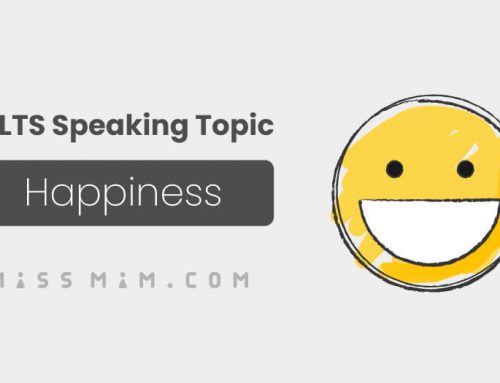
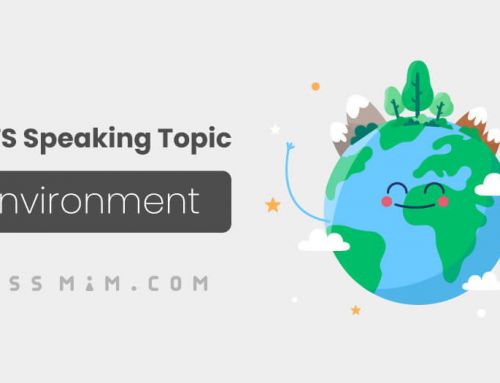
ثبت ديدگاه